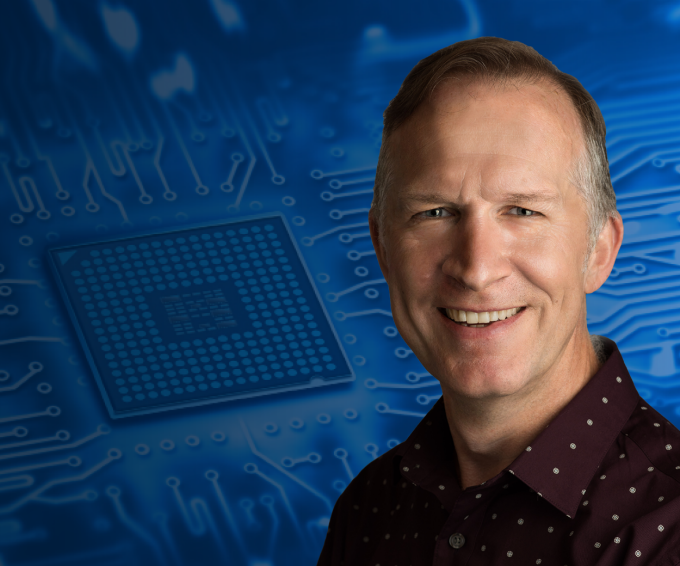Here is how we lead the charge in microelectronics
UB launches Center for Advanced Semiconductor Technologies

The new center cements the University at Buffalo’s position globally as a leader in microelectronics.
Led by Jonathan Bird, professor and chair of the UB Department of Electrical Engineering, the Center for Advanced Semiconductor Technologies will enable strategic research in the semiconductor industry, support an entrepreneurial and innovative ecosystem, and provide career pathways and employment opportunities to the region’s historically underserved communities.
The center’s formation follows significant federal investment in microelectronics, including through the designation of the Buffalo-Rochester-Syracuse region as a federal tech hub, 2022’s CHIPS and Science Act—a $280 billion effort to boost microchip research and production in the United States—and a $45 million investment in the semiconductor industry by the National Science Foundation.
Establishing this center also sets a course for UB to join critical efforts to advance the semiconductor industry in New York State, such as the Northeast Defense Technology Hub. This regional coalition of private and public sector experts in microelectronics will help supercharge New York’s booming chips industry to spur innovation, attract new companies, and strengthen the workforce, which is vital to the nation’s national security.
A collaborative effort
Leadership from the center will work in conjunction with UB programs and departments that have long partnered with organizations in the semiconductor industry. UB’s Center for Industrial Effectiveness will continue to foster collaborative microelectronics partnerships across the region, support new academic programs with microchip manufacturers and related industries, and work to boost the nation’s workforce in the microelectronics industry.
In addition, UB’s Center of Excellence in Materials Informatics will support strategic industry projects that advance materials research and development, and provide experiential learning opportunities for students. In collaboration with the new center, experts pushing the frontiers of science and engineering in the Department of Electrical Engineering, the Department of Materials Design and Innovation, and the Department of Physics will advance data-driven discovery methods and accelerate the development and design of new materials and processes.
The center’s co-directors are Ian Sellers and Uttam Singisetti, both professors of electrical engineering, and Hao Zeng, professor of physics.

